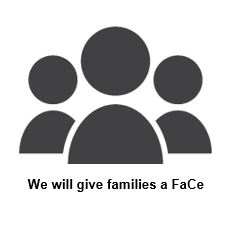The overall aim of the Family Focused Healthcare Research Center FaCe is to establish a multidisciplinary research network and a research program with a focus on the health of patients and their close family members affected by acute or chronic conditions across the patient trajectory.
The creation of FaCe is to encompass a bridging between different research units at the Department of Clinical Research at the Faculty of Health Sciences, University of Southern Denmark (SDU) and different departments treating families at the hospitals and municipalities in the Region of Southern Denmark. Following the Research Strategy for Department of Clinical Research, SDU and Odense University Hospital 2015-2020, People Comes First and the need to establish a new framework for stronger involvement with both patients and family members is clear. FaCe will also be a natural support for the UN’s Sustainable Development Goals, especially goal no. 3 “Health & Well-being” which is important for SDU to follow.
Multidisciplinary healthcare team
The FaCe will have an emphasis on family suffering and target the care of the patient and family within the multidisciplinary healthcare team both
- A) the family as a unit of care and/or
- B) individual patient & family members.
FaCe will investigate:
- Needs of patients & families in different phases of the disease trajectory
- Development of outcomes
- Effective interventions and
- How to implement these in a clinical workflow
Further, the center aims to build fruitful collaborations and partnerships between national and international researchers, clinicians, patients and families across healthcare sectors in order to increase and coordinate research and clinical practice in the field of family health and well-being, not only during hospitalization but in everyday life. Consecutively add to more knowledge that may influence clinical practice of different professionals who are providing support in the first line of health care to patients and families.
The western lifestyle with an increase in divorces’ and migration has created changed family patterns. Thus, the concept of family has many forms varying from extended family groups to small groups of next of kin comprising of two-generation households or one-generation household in late life. Therefore, FaCe defines family as one or more individuals nominated by the patient, who are most meaningful and supportive to the patient in the actual time of need, and not exclusively in bloodlines.
